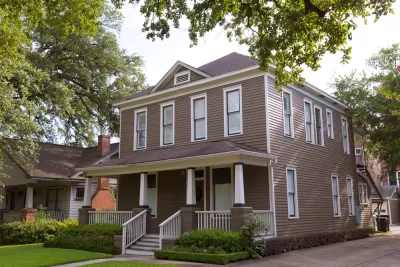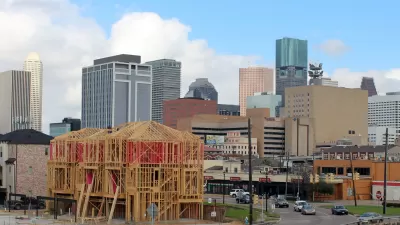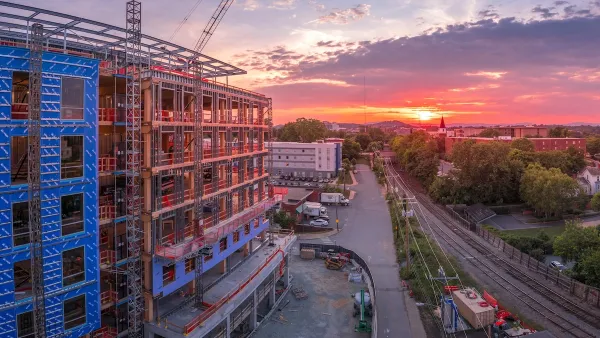In a victory for preservationists, the Texas Supreme Court upheld Houston's Historic Preservation Ordinance despite a lawsuit alleging that the ordinance constitutes illegal zoning rules.

Sara Bronin examines the long-held maxim that Houston, Texas is "zoning’s last frontier," a sprawling metropolis of essentially unregulated land uses, after a consequential ruling by the state's Supreme Court in a lawsuit that challenged Houston's Historic Preservation Ordinance as a form of de facto land use control, equivalent to zoning.
In a lawsuit named Powell v. City of Houston, two homeowners assert that the city's Historic Preservation Ordinance (HPO), “which requires covered property owners to submit plans for significant exterior changes to the city’s Archaeological and Historical Commission," constitutes a violation of "both Houston’s charter (which requires a citywide referendum to green-light zoning) and the state’s zoning enabling act (Chapter 211 of the Texas Local Government Code)."
According to the city, the HPO is not a zoning regulation. In arguing in support of the city's position, Bronin writes that "[z]oning and historic preservation law derive from distinct legal schemes and have different purposes." Unlike zoning, which regulates "uses, structures, and lots in distinctly-regulated districts," historic preservation is much less comprehensive than zoning and "largely protects a subset of built resources – historic resources – and usually applies to just a fraction of land within any particular jurisdiction."
The Texas Supreme Court agreed, ruling in June that "the ordinance does not implement zoning as that concept is originally understood, and therefore the City Charter’s limits on zoning do not apply," as the HPO "did not come close to citywide applicability, it did not subject regulated property to uniform standards, and it did not implicate uses."
The Court's decision "was a definitive victory for historic preservation, for the City, and for all Houston property owners who opted in to the HPO," letting "the city of no zoning" regulate land use in, at least, a piecemeal way.
FULL STORY: Houston: Still Zoning’s Last Frontier?

Planetizen Federal Action Tracker
A weekly monitor of how Trump’s orders and actions are impacting planners and planning in America.

Chicago’s Ghost Rails
Just beneath the surface of the modern city lie the remnants of its expansive early 20th-century streetcar system.

San Antonio and Austin are Fusing Into one Massive Megaregion
The region spanning the two central Texas cities is growing fast, posing challenges for local infrastructure and water supplies.

Since Zion's Shuttles Went Electric “The Smog is Gone”
Visitors to Zion National Park can enjoy the canyon via the nation’s first fully electric park shuttle system.

Trump Distributing DOT Safety Funds at 1/10 Rate of Biden
Funds for Safe Streets and other transportation safety and equity programs are being held up by administrative reviews and conflicts with the Trump administration’s priorities.

German Cities Subsidize Taxis for Women Amid Wave of Violence
Free or low-cost taxi rides can help women navigate cities more safely, but critics say the programs don't address the root causes of violence against women.
Urban Design for Planners 1: Software Tools
This six-course series explores essential urban design concepts using open source software and equips planners with the tools they need to participate fully in the urban design process.
Planning for Universal Design
Learn the tools for implementing Universal Design in planning regulations.
planning NEXT
Appalachian Highlands Housing Partners
Mpact (founded as Rail~Volution)
City of Camden Redevelopment Agency
City of Astoria
City of Portland
City of Laramie




























